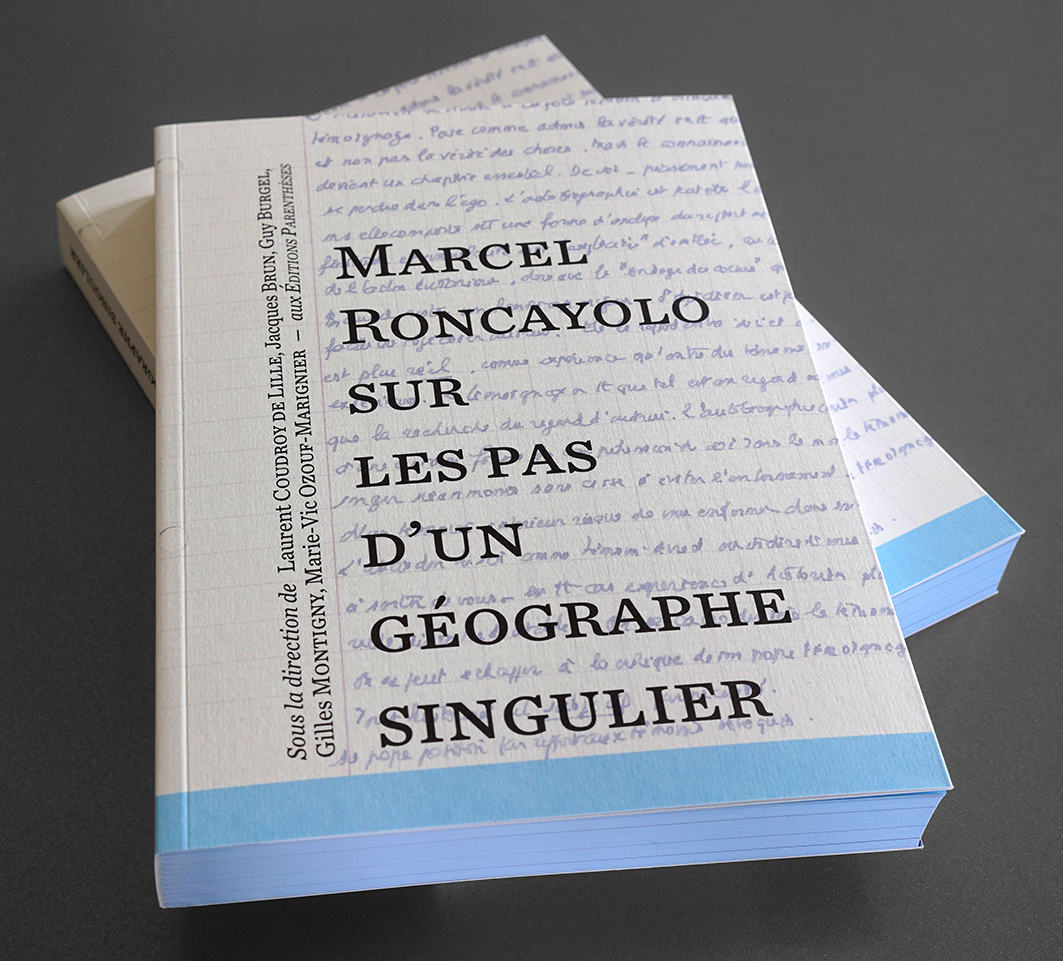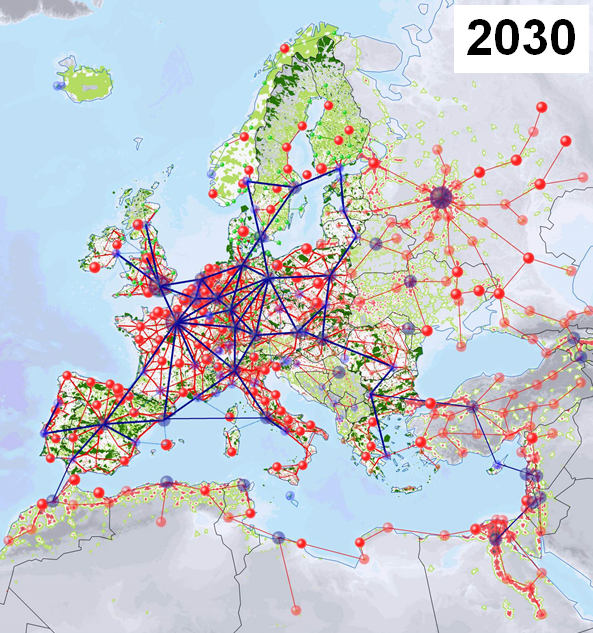Marie-Vic Ozouf-Marignier az Atelier-ben

2024. április 29.
ELTE BTK Főépület (1088 Budapest, Múzeum krt. 6–8.) II. emelet 247-es terem
2024. április 29. -
ELTE BTK Főépület (1088 Budapest, Múzeum krt. 6–8.) II. emelet 247-es terem
1. előadás
Várostörténet Marcel Roncayolóval. A Sur les pas d'un géographe singulier [Egy sajátos földrajz nyomában] (Parenthèses, 2023) kapcsán · Doing urban history with Marcel Roncayolo. Around Sur les pas d'un géographe singulier (Parenthèses, 2023) · Faire de l’histoire urbaine avec Marcel Roncayolo. Autour de Sur les pas d’un géographe singulier (Parenthèses, 2023)

Időpontja: 2024. 04. 29. 10:00
Helyszín: ELTE BTK főépület, II. emelet, 247-es terem
A Marcel Roncayolo (1926-2018) geográfus tiszteletére megjelent könyvvel egy időben ez az előadás visszatekint Roncayolo munkásságára a várostörténet-kutatásban, amelynek franciaországi fejlődéséhez nagyban hozzájárult. Multidiszciplináris megközelítését kezdetben az Annales-iskola társadalom- és gazdaságtörténete inspirálta. Ezt követően párbeszédbe lépett a várostörténet specialistáival (Bergeron, Perrot, Garden, Lepetit). Pályája későbbi szakaszában Roncayolo a Roger Dion által a vidéki tájra alkalmazott történeti és "retrospektív" földrajzhoz hasonló várostörténetet dolgozott ki. Ennek köszönhetően a város időbeliségét eredeti módon, a Braudelétől eltérő megközelítésben vizsgálta. Szó lesz más társadalomtudományi irányzatok, így például a durkheimi szociológia és a chicagói iskola Roncayolóra gyakorolt hatásáról is.
To coincide with the publication of a book in his honour, this lecture will look back at the intellectual career of geographer Marcel Roncayolo (1926-2018) in the field of urban studies, which he helped to develop in France. His multidisciplinary approach was initially inspired by the social and economic history of the Annales movement. He then entered into dialogue with specialists in urban history (Bergeron, Perrot, Garden, Lepetit). Later in his career, Roncayolo developed an urban history similar to the historical and 'retrospective' geography applied to the rural landscape by Roger Dion. This led him to study the temporality of the city in an original way, in an approach distinct from that of Braudel. We will also look at Roncayolo's borrowings from other social sciences, such as Durkheimian sociology and the Chicago School.
A l’occasion de la publication du livre en son hommage, cette conférence reviendra sur la trajectoire intellectuelle du géographe Marcel Roncayolo (1926-2018) dans le champ des études urbaines (urban studies) qu’il a contribué à développer en France. Sa démarche pluridisciplinaire s’inspire d’abord de l’histoire sociale et économique du courant des Annales. Puis, il dialogue avec les spécialistes d’histoire urbaine (Bergeron, Perrot, Garden, Lepetit). Dans la suite de sa carrière, Roncayolo développe une histoire urbaine proche de la géographie historique et « rétrospective » appliquée au paysage rural par Roger Dion. Cela le conduit à étudier de façon originale les temporalités de la ville, dans une démarche distincte de celle de Braudel. Nous évoquerons également les emprunts de Roncayolo à d’autres sciences sociales comme c’est le cas de la sociologie durkheimienne et de l’Ecole de Chicago.
2. előadás
Néhány kortárs változásról a területrendezésben · Some contemporary changes in territorial planning · De quelques mutations contemporaines de l’aménagement du territoire

Időpontja: 2024. 04. 29. 14:00
Helyszín: ELTE BTK főépület, II. emelet, 247-es terem
Franciaországban a területrendezést a második világháborút követően intézményesítették a francia forradalomtól örökölt elvek - egyetemesség, egyenlőség, egyensúly és központosítás - alapján. A területrendezés tehát a helyszínek alakításáról, a támogatások elosztásáról és a közpolitika meghatározásáról szólt, azzal a követelménnyel, hogy azokat az egész területen egységesen kell alkalmazni. Az 1980-as évekbeli decentralizáció, az európaizáció, valamint a neoliberalizmus és a New Public Management fejlődése óta a területrendezés mélyreható átalakuláson ment keresztül, magáévá téve a differenciálás elvét. A közösségi területi működés magában foglalja a helyi kísérletezés módszerét, a „jó gyakorlatok” terjesztését és a lakossági részvételt is. Az előadásban elemezni fogjuk ezeket az új tervezési módszereket és a francia kormányzás univerzalizmusától és centralizációjától való elszakadásukat.
In France, spatial planning was institutionalised in the aftermath of the Second World War in accordance with the principles inherited from the French Revolution: universality, equality, balance and centralisation. It was therefore a matter of influencing locations, distributing subsidies and defining public policies with the requirement that they be applied uniformly throughout the territory. Since decentralisation in the 1980s, Europeanisation and the development of neo-liberalism and New Public Management, spatial planning has undergone a profound transformation, accepting the principle of differentiation. Territorial public action also includes the method of local experimentation, the dissemination of 'good practice' and citizen participation. The conference will analyse these new planning methods and their departure from the universalism and centralisation of French-style government.
En France, l’aménagement du territoire s’est institutionnalisé au lendemain de la seconde guerre mondiale en observant les principes qui étaient hérité de la Révolution française : universalité, égalité, équilibre, centralisation. Il s’agissait donc d’agir sur les localisations, de distribuer les subventions et de définir des politiques publiques dans l’exigence qu’elles s’appliquent de manière uniforme dans tous les points du territoire. Depuis la décentralisation des années 1980, l’européanisation et le développement du néolibéralisme et du New Public Managment, l’aménagement du territoire s’est profondément transformé en admettant le principe de la différenciation. L’action publique territoriale inclut aussi la méthode de l’expérimentation locale, de la diffusion de « bonnes pratiques » et de la participation citoyenne. La conférence analysera ces nouvelles modalités de l’aménagement et leurs ruptures avec l’universalisme et la centralisation de la gouvernementalité à la française.

